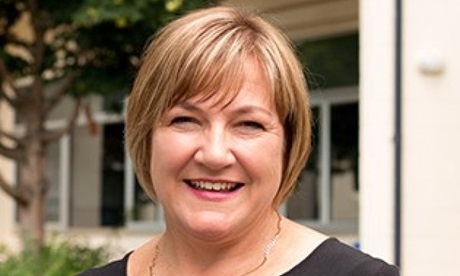New survey results have Trinity Catholic College principal Kate Nicholson (pictured) concerned. They show over half Dunedin’s teenage girl respondents feel unsafe in the inner city.
Nicholson and Dunedin Student Council president Rohan O’Shea led the survey of 1300 Dunedin secondary students after schoolboy Enere McLaren-Taana’s fatal stabbing earlier this year.
It aimed to see how teenagers felt about their safety in the inner city.
All but one Dunedin secondary school participated and the findings were shared with each principal. Each school may decide what to do with the findings, Nicholson says.
The survey results were also included in a Central City Safety Advisory Group report for their action.
Set up after McLaren-Taana’s death, the Group members represent a cross-section of city, school, student and community leaders.
Scared and harassed
Of the 22 percent of students who answered the survey, 45 percent said they did not feel safe in the inner city. Many have to be in town to get to and from school.
The figures were significantly worse for girls: 55 percent said they did not feel safe; fewer than five percent said they do feel safe.
Cat-calling and verbal harassment were commonly cited and significant threats of assault, advances and harassment were reported.
The survey included space for long-form answers. Testimonies from teenage girls spoke of sexual assaults and harassment at the bus hub and in the inner city.
Many commented that drug and alcohol use in the area was a significant problem.
Many also said they felt angry, abandoned and did not believe anyone cared.
Police engagement
The survey found that threatening behaviour, sexual assault and harassment towards young women is largely unreported to police, says Police Otago Coastal area prevention manager Sam Ramsay.
“We know it can be incredibly hard and at times distressing … but we would like to reassure any victims of sexual offending we have a dedicated team of officers and detectives who focus on this area.”
Police take any report of sexual harassment or violence seriously, he stresses.
Since McLaren-Taana’s death police have developed a more visible presence especially around the bus hub, in addition to their established inner-city team.
Part of that work involves strongly encouraging people to report violent incidents and threats to police.
Where to from here
Anyone who has been made to feel uncomfortable in a situation with others should report it or discuss it with someone they trust who can offer help, says Nicholson.
She understands reliving experiences and talking to the police can be difficult.
“It’s always going to be difficult, but there are other ways for them to speak out, such as to school counsellors, to deans or to a trusted teacher.”
Listening to students important
Nicholson is impressed with the 22 percent student response rate to the survey.
“But more opportunities to listen to student opinion are needed.
“I think it also indicates that maybe we don’t ask our young people enough about what their opinions and views on things are.
“It’s very easy for adults to surmise or assume positions of students.
“It’s just a good reminder to us to listen and give … them a forum to speak openly where there’s no judgement.”
Source
Agencies offering information and help include:
